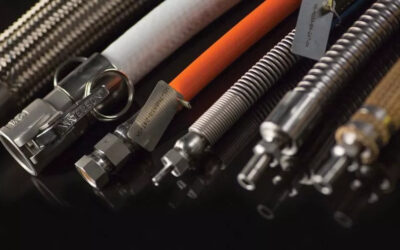Supreme Court privileges ordinary language over legalisms in Sale of Goods Act decision
The Supreme Court of Canada’s May 31, 2024, decision in Earthco Soil Mixtures Inc v Pine Valley Enterprises Inc, 2024 SCC 20, has done away with the requirement for “magic words” or legalistic drafting to contract out of the default conditions attaching to sales of goods under legislation that applies in most of Canada. Read the full article on our Online Journal!
Eureka! Supreme Court stakes discovery of a claim on plausible inference
During the past twenty years, many provinces have simplified their legislation governing limitation periods. One remaining complexity is that courts have continued to assess when a claim is discovered – which starts the limitation clock running – based on knowledge of the material facts to support the required elements of a legal cause of action. That issue has now been addressed by the Supreme Court of Canada in Grant Thornton LLP v New Brunswick, which has simplified the required analysis.
Supreme Court torpedoes Mr. Submarine’s recovery of pure economic loss from allegedly negligent supplier
On November 6, 2020, the Supreme Court of Canada released a 5-4 decision on recovery of negligently-caused pure economic loss that will be significant for defendants faced with product liability claims where no physical harm or property damage was caused. The majority in 1688782 Ontario Inc v Maple Leaf Foods Inc ruled that economic harm suffered by Mr. Submarine franchisees from a recall of potentially contaminated Maple Leaf sandwich meats was not recoverable in negligence because any danger was directed at consumers, not the franchisees, and there was no legitimate reason to superimpose tort law duties for economic harms over the business relationships already in place. Where pure economic loss claims for negligently-supplied dangerous goods are brought by an appropriate claimant, the Supreme Court also limited the scope of damages that may be recovered.
Missing the Mark: Contractor’s Use of Products in Violation of Code was Evidence of Negligence
Even for those who purchase and install products, compliance with statutory regulation is a must. In Taylor v. Great Gulf (Whitby) Ltd.,[1] a contractor who purchased and installed materials which were improperly labelled learned an important lesson in negligence law: although a breach of statutory authority does not alone give rise to civil liability, such breaches can be evidence of negligence. In deciding that there was a serious issue to be tried, the court took a broad view of causation and decided that it would be open to trier of fact to find that the defendant’s breach of code was substantially connected to the plaintiff’s injury.
Pure Economic Loss Claim Applies To Patent Defects That Are Not Imminently Dangerous
The Manitoba Court of Appeal has held that a defendants’ motion for summary judgment should be dismissed, rejecting their argument that claims for pure economic loss for patent defects that are not imminently dangerous should not proceed to trial. This is yet another in a long line of cases interpreting the seminal Supreme Court of Canada decision in Winnipeg Condominium Corp. No. 36 v. Bird Construction Co., where the Court held a defendant liable for a dangerous defect even though there had been no damage to persons or property (i.e. a pure economic loss claim).
A Cautionary Tale: The Party That Imposes Specifications For Methods And Materials Is Responsible For Its Defects
The Ontario Court of Appeal has held that where a plaintiff has imposed the methods and materials that the defendant must use to complete a project, the defendant is absolved of responsibility if the project proves to be defective, as the risk has been allocated to the plaintiff. Although this decision is not a typical products case, the considerations are similar to those that a court reviews in a case involving the implied warranty of fitness under the provincial Sale of Goods acts.
Manufacturer Fails To Set Aside Jury Decision Imposing Liability For Failure To Warn
A recent decision by the Ontario Court of Appeal, illustrates the difficulties faced by companies that try to challenge a jury’s findings. In Stillwell v. World Kitchen Inc., the plaintiff was injured when a Dutch oven he was washing broke into four large pieces, severely lacerating his wrist. The jury awarded damages of $1.1 million less 25% for the plaintiff’s contributory fault. The jury did not find that there was a manufacturing or design defect, but instead found that the defendants failed to adequately warn the plaintiffs. The warning that the product was prone to break if dropped or subjected to a hard impact was not found on the outside of the box or in the warning section of the manual, but was instead in the “Remember” section of the manual.
What Killed The Bunnies? The Importance Of Causation
A commercial rabbit farmer found out that the implied warranty of merchantability under Ontario’s Sale of Goods Act provides no protection where causation is not proven and the contractual documents provided no basis to determine the acceptable level of toxins and other contaminants in rabbit feed.
Supplier And Manufacturer Of Copper Piping Liable For Failure To Meet City’s Watermain Sterilization Process
The Ontario Superior Court of Justice rendered a decision involving a product liability claim that considered new legislation and guidelines arising from the Walkerton water crisis. This case suggests that even if there has been no specific discussion about a product between the buyer and seller, a Court might still find that the buyer has relied on the seller regarding the suitability of a product if the seller had previously provided advice. The decision also suggests that if a supplier knows that a product will be used for an application that has to meet specific local standards, the supplier needs to make an inquiry of the manufacturer to ensure that it meets those standards.









